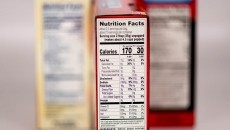Set back for GM maize decision
authorise imports of a GM sweetcorn onto European lands, opting to
bundle the issue with other GM points on the agenda of an upcoming
Commission meeting later this month.
Expected to relaunch the debate on BT 11 ?a genetically modified maize marketed by Swiss biotech firm Syngenta - the European Commission this week failed to draw up a proposal to send to EU ministers.
'One of the Commissioners at the meeting on Tuesday felt that it should be an oral procedure ?discussed ?not a written procedure,?/i> a Commission spokesman told FoodNavigator.com.
As such, the proposal has shifted onto the Commission agenda for the 28 January, where 'it fitted well with other points on GM's expected to be discussed,?/i> added the spokesman, although precise details on issues due at the table were not available.
If Europe opens its borders to BT-11 imports, the EU's unofficial ban on GMOs would effectively end, to the delight of pro-GM countries such as Canada and the United States where the crop is currently cultivated.
Europe has been under some pressure from the United States to lift the GM moratorium, seen by the US as an troublesome trade barrier and a blow to its farmers. Earlier this year the US, along with Canada, took the issue to a World Trade Organisation dispute panel.
But late last year, an EU comittee of experts failed to support the Commission proposal to authorise imports of the first GM foodstuff ?Syngenta's BT11 sweetmaize - since the de facto moratorium begun five years ago. As such, the vote has now passed to Europe's agriculture ministers. The delay on the Commission proposal this week pushes the decision back further.
Grown in the US and Canada since 1996, and authorised for food and feed in the EU since 1998, Syngenta's biotech maize BT 11 is resistant to the European corn borer (ECB) Ostrinia nubilalis and the herbicide phosphinothricin (PPT). Agronomists pitch losses caused by the ECB in the US and Canada- damage and control costs -at $1 billion each year.
Grown commercially in over 100 countries, global maize production is in the region of 590 million metric tonnes. While only a small amount of whole maize kernel is consumed by humans, maize oil is extracted from the germ of the maize kernel.
Maize is also a raw material in the manufacture of starch. A complex refining process converts the majority of this starch into sweeteners, syrups and fermentation products. Refined maize products, sweeteners, starch, and oil are abundant in processed foods such as breakfast cereals, dairy goods, and chewing gum.













